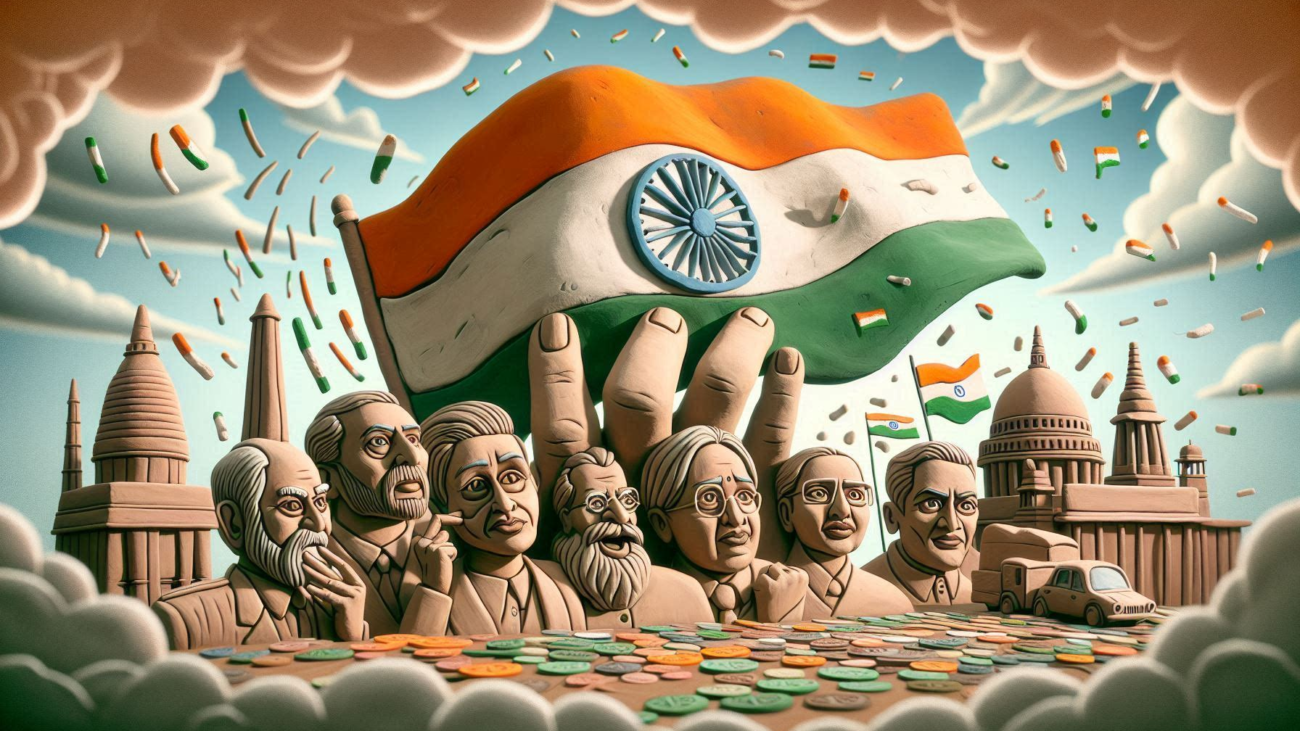India stands at a crucial juncture in its development trajectory, where its political economy must address the rising needs of its population in nutrition, healthcare, and advanced agriculture. Concurrently, there is an urgent requirement to enhance the skill force of the country, aligning with 21st-century job demands. Furthermore, small businesses must embrace digital transformation to remain competitive globally. This article delves into these critical aspects, underscoring the interconnectedness of these sectors and the pathways to sustainable growth.
The Rising Need for Nutrition and Healthcare
India’s demographic dividend presents both opportunities and challenges. With a burgeoning population, the demand for adequate nutrition and quality healthcare has never been higher. Despite significant strides in reducing malnutrition and improving healthcare access, substantial gaps remain.
Nutrition: The Global Hunger Index places India in a concerning position, indicating high levels of child malnutrition and stunted growth. This scenario is exacerbated by socio-economic disparities, which limit access to nutritious food for large segments of the population. Government programs like the Mid-Day Meal Scheme and the Integrated Child Development Services (ICDS) aim to address these issues, but implementation inefficiencies often hinder their effectiveness.
Healthcare: India’s healthcare system faces immense pressure due to the dual burden of communicable and non-communicable diseases. The COVID-19 pandemic further highlighted the fragility of the healthcare infrastructure. While initiatives like Ayushman Bharat seek to provide universal healthcare coverage, challenges such as inadequate healthcare facilities, a shortage of medical professionals, and urban-rural healthcare disparities persist.
Advanced Agriculture: The Backbone of Nutrition and Economy
Addressing nutritional needs and healthcare starts with improving agricultural productivity and sustainability. Advanced agriculture can significantly contribute to enhancing food security and nutrition.
Precision Farming: Integrating technology in agriculture through precision farming can optimize resource use and increase crop yields. Technologies like satellite imagery, drones, and IoT devices help monitor crop health, soil conditions, and weather patterns, enabling farmers to make informed decisions.
Sustainable Practices: Promoting sustainable agricultural practices, such as crop rotation, organic farming, and agroforestry, can improve soil health and biodiversity. These practices not only boost productivity but also ensure long-term agricultural sustainability.
Supply Chain Modernization: Efficient supply chain management is crucial for reducing food wastage and ensuring timely delivery of agricultural produce. Blockchain technology can enhance transparency and traceability, ensuring that farmers receive fair prices and consumers get quality products.
Enhancing the Skill Force: Aligning with 21st Century Jobs
India’s labor market must evolve to meet the demands of the 21st-century economy. This involves a dual focus on upskilling the existing workforce and preparing the future workforce with relevant skills.
Vocational Training: Expanding vocational training programs can equip individuals with practical skills required in sectors like healthcare, agriculture, and technology. Government initiatives like the Pradhan Mantri Kaushal Vikas Yojana (PMKVY) are steps in the right direction but need broader reach and deeper impact.
Digital Literacy: As the world becomes increasingly digital, digital literacy is paramount. Programs that teach basic digital skills, coding, data analysis, and cybersecurity can prepare the workforce for jobs in the digital economy.
Public-Private Partnerships: Collaborating with the private sector can enhance the quality and relevance of skill development programs. Industry leaders can provide insights into current and future job market needs, ensuring that training programs are aligned with these demands.
Small Businesses: Embracing Digital Transformation
Small and medium enterprises (SMEs) are the backbone of the Indian economy, contributing significantly to employment and GDP. To remain competitive in the global market, SMEs must embrace digital transformation.
E-commerce Platforms: Utilizing e-commerce platforms can expand the market reach of small businesses, allowing them to tap into national and international markets. Digital marketplaces provide a level playing field for SMEs, enabling them to compete with larger players.
Digital Marketing: Leveraging digital marketing strategies can help SMEs build their brand, reach target audiences more effectively, and enhance customer engagement. Social media, search engine optimization (SEO), and content marketing are essential tools in this regard.
Automation and AI: Incorporating automation and artificial intelligence (AI) in business processes can enhance efficiency, reduce costs, and improve decision-making. From inventory management to customer service, AI-driven solutions can transform SME operations.
Access to Finance: Digital platforms can also facilitate access to finance for SMEs. Fintech solutions offer innovative financial products, such as peer-to-peer lending and digital payment solutions, which can help SMEs manage cash flow and invest in growth.
Conclusion: Pathways to Sustainable Growth
India’s political economy must adapt to the evolving needs of its population, focusing on nutrition, healthcare, advanced agriculture, skill development, and digital transformation of SMEs. These sectors are interconnected, and progress in one can catalyze improvements in others.
Policy Recommendations:
- Integrated Approach: Develop integrated policies that address nutrition, healthcare, and agriculture in a holistic manner. For instance, linking agricultural subsidies to sustainable farming practices can improve food security and environmental outcomes.
- Investment in Technology: Increase investment in technology across sectors. This includes funding research and development in agricultural technology, expanding telemedicine infrastructure, and supporting digital literacy programs.
- Public Awareness: Raise public awareness about the benefits of advanced agriculture, digital transformation, and vocational training. This can drive adoption and participation in these initiatives.
- Inclusive Policies: Ensure that policies are inclusive and address the needs of marginalized communities. This includes improving access to quality education, healthcare, and financial services for all.
- Monitoring and Evaluation: Implement robust monitoring and evaluation mechanisms to assess the impact of policies and programs. Data-driven insights can guide adjustments and improvements.
By addressing these challenges and implementing strategic policies, India can pave the way for a prosperous and equitable future. The next 40 years present an opportunity to build a resilient economy that meets the needs of its people and competes effectively on the global stage.

